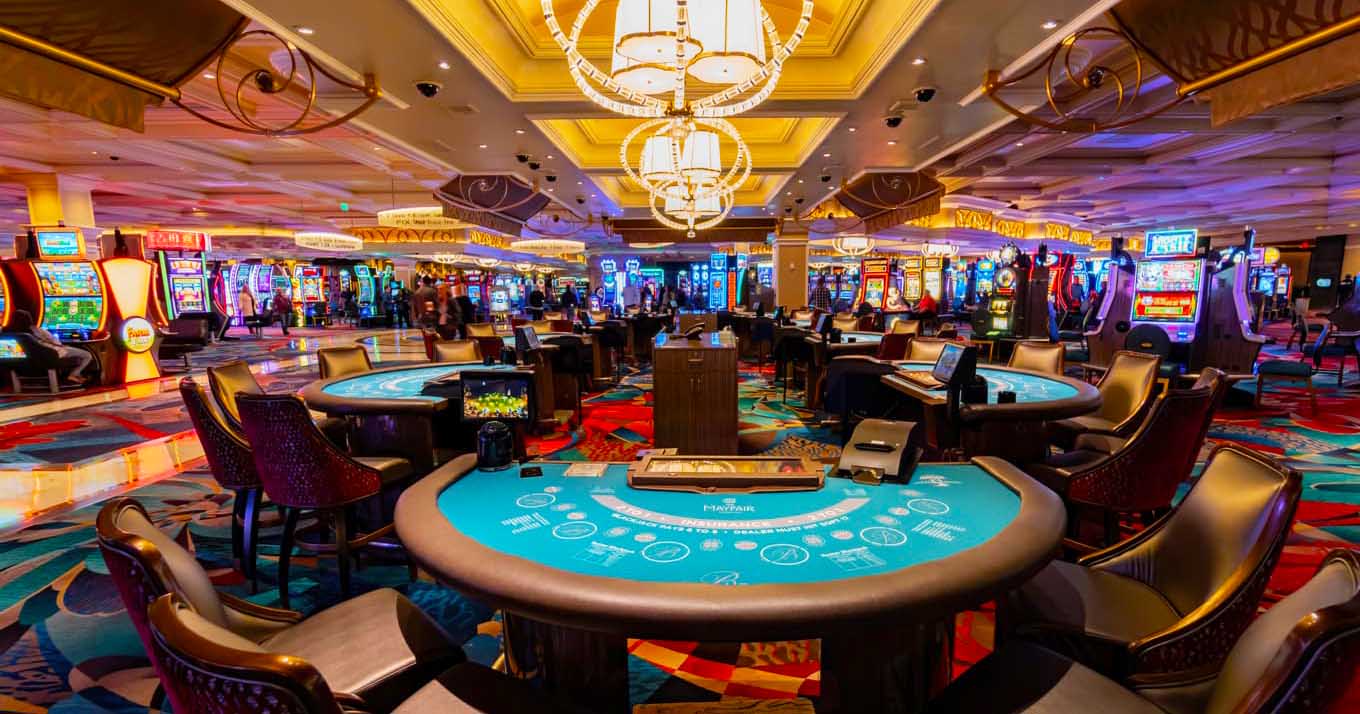An Overview of Gambling History: From the Ancient Era to Present-Day Casino Gaming

Gambling has been an important part of human entertainment for thousands of years, transforming through societies and eras to become the vibrant casino activities we know today. From the historical Chinese and Romans, who engaged in different forms of gambling and luck, to the advanced gaming floors of contemporary casinos, the appeal of gamble and winning has fascinated individuals across the globe. The transition from basic dice games and rudimentary betting setups to the lavish environments of modern casinos reflects considerable strides in both social norms and technological.
As societies evolved, so too did the complexity of gambling activities, with casino games emerging as a separate category of leisure and thrills. These activities have changed from informal gatherings centered around traditional tables to sprawling, lavish establishments designed to attract players. Today, we investigate this captivating journey, examining how traditional practices laid the groundwork for the varied and thrilling casino activities that bring joy to millions worldwide.
spintax
Historical Gambling Traditions
Gambling has deep roots in human history, with indications of games of chance dating back to ancient societies. Archaeologists have discovered that as far back as 3000 BC, the ancient Chinese were using basic forms of gambling with dice made from wood. Similarly, ancient cultures of Mesopotamia engaged in gambling activities, often relying on the casting of lots or dice to determine results. These early forms of gambling served not only as recreation but also played important roles in social and cultural customs.
The Egyptians also took part in gambling activities, with games that included betting on the results of various occurrences, including sports and spiritual festivals. Artifacts such as dice and depictions of gamblers from ancient tombs illustrate that betting was a frequent pastime. It provided both relaxation and a means of engaging in social connections, often linked to joyful occasions or major gatherings. This activity revealed the universal appeal of chance and rivalry throughout the ages.
In ancient Rome, betting became a widespread practice among the people, as shown in references in texts and the establishment of rules around certain games. Romans enjoyed a variety of betting activities, from betting on chariot races to playing games like modern-day board games. The legal structure surrounding these activities began to take shape, establishing the foundations for gambling regulations that would grow in the centuries to come. The prevalence of gambling during this period set the stage for the development of gambling house games in the future.
The Development of Gambling Games
Casino games have undergone substantial transformations from their origins to the modern-day entertainment offerings. In historical civilizations, gaming was commonly connected to ceremonial practices, with dice games found in Mesopotamia and betting on the outcomes of events in old Rome. These initial forms of gambling laid the foundation for the formal games we see today. The transition from informal gambling to regulated games took place as societies began forming rules and venues for wagering, reflecting cultural values and practices.
The Middle Ages saw the rise of card games, which gained fame among European nobility. Games like primero and the game baccarat became essential components in social gatherings. The creation of printing technology further aided the spread of playing cards, making them more available to the common people. As gambling houses began to increase, these card games developed into different forms that catered to wider audiences, eventually leading to the creation of casinos as dedicated venues for gaming.
The 20th century marked a significant point in the evolution of casino games, with the ascendancy of commercial casinos in Las Vegas and other gambling hotspots. This era saw the introduction of games like slot machines and modern adaptations of table games, complete with high-quality graphics and intricate betting structures. The introduction of online casinos in the late 1990s also revolutionized the gaming industry, allowing players to access a wide range of casino games from the convenience of their homes. Today, gambling games continue to develop, blending classic elements with state-of-the-art technology to create captivating experiences for players worldwide.
Modern Gaming Laws
In recent years, the area of gambling laws has changed substantially, especially as tech advances and internet-based gaming have become increasingly prevalent. Regulatory bodies around the world have enacted numerous laws and guidelines to guarantee that gambling activities are conducted fairly, with responsibility, and openly. These laws often encompass factors such as licensing, advertising, player protection, and responsible gaming measures. Authorities aim to mitigate issues such as gambling addiction and fraudulent activities while supporting a fair gambling environment.
The growth of internet gambling sites has created a need for a new approach to oversight. Many jurisdictions have established dedicated online gambling frameworks that cater to online gaming, enabling operators to offer their offerings legally. These frameworks often demand operators to get permits, follow strict security protocols, and provide assistance options to assist players. By vigilantly supervising online activities, regulators can more effectively protect players from risks and make sure that gaming is carried out in a secure manner.
Additionally, contemporary gaming laws are increasingly centering around responsible gambling initiatives. Many casinos and online platforms now adopt features such as player exclusion, deposit limits, and breaks to help players manage their gaming habits. Educational campaigns aimed at educating about the risks of gaming are also common. As the sector continues to grow, the focus on sensible gaming continues to be a fundamental principle of regulatory efforts, reflecting a dedication to promoting a secure and pleasant gaming experience for all gamblers.
non GamStop
